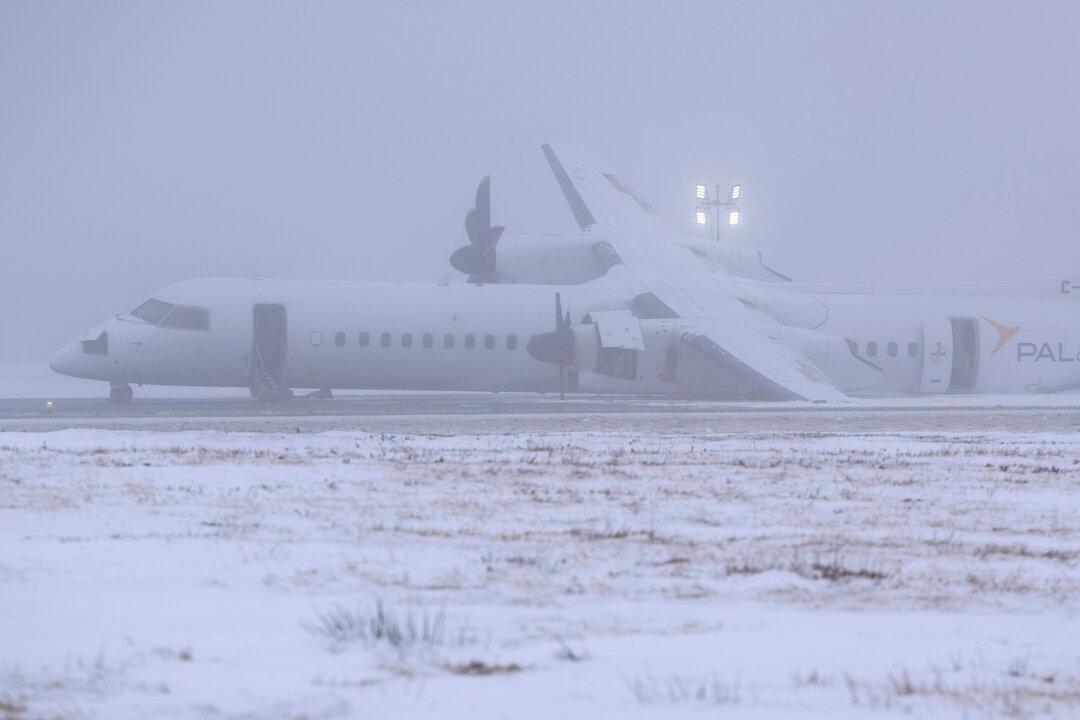Flights have resumed at Halifax Stanfield International Airport following an aircraft landing incident on Saturday night, Dec. 28, though some closed runways may cause delays, the airport said.
The incident occurred around 9:30 p.m., when Air Canada Express Flight 2259, operated by PAL Airlines, experienced a “suspected landing gear issue” upon arrival from St. John’s, Newfoundland and Labrador, an Air Canada spokesperson told The Epoch Times on Dec. 29.





